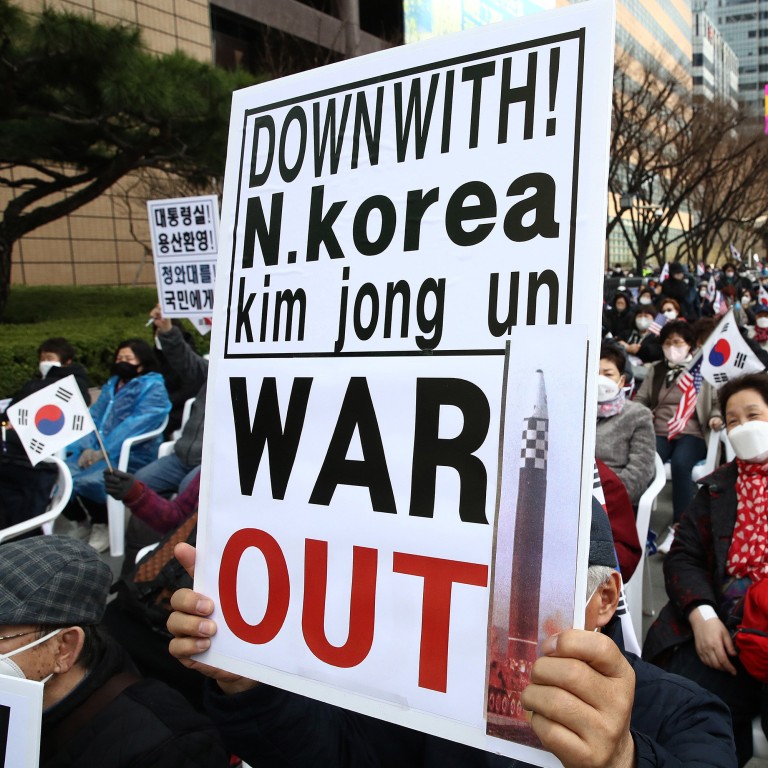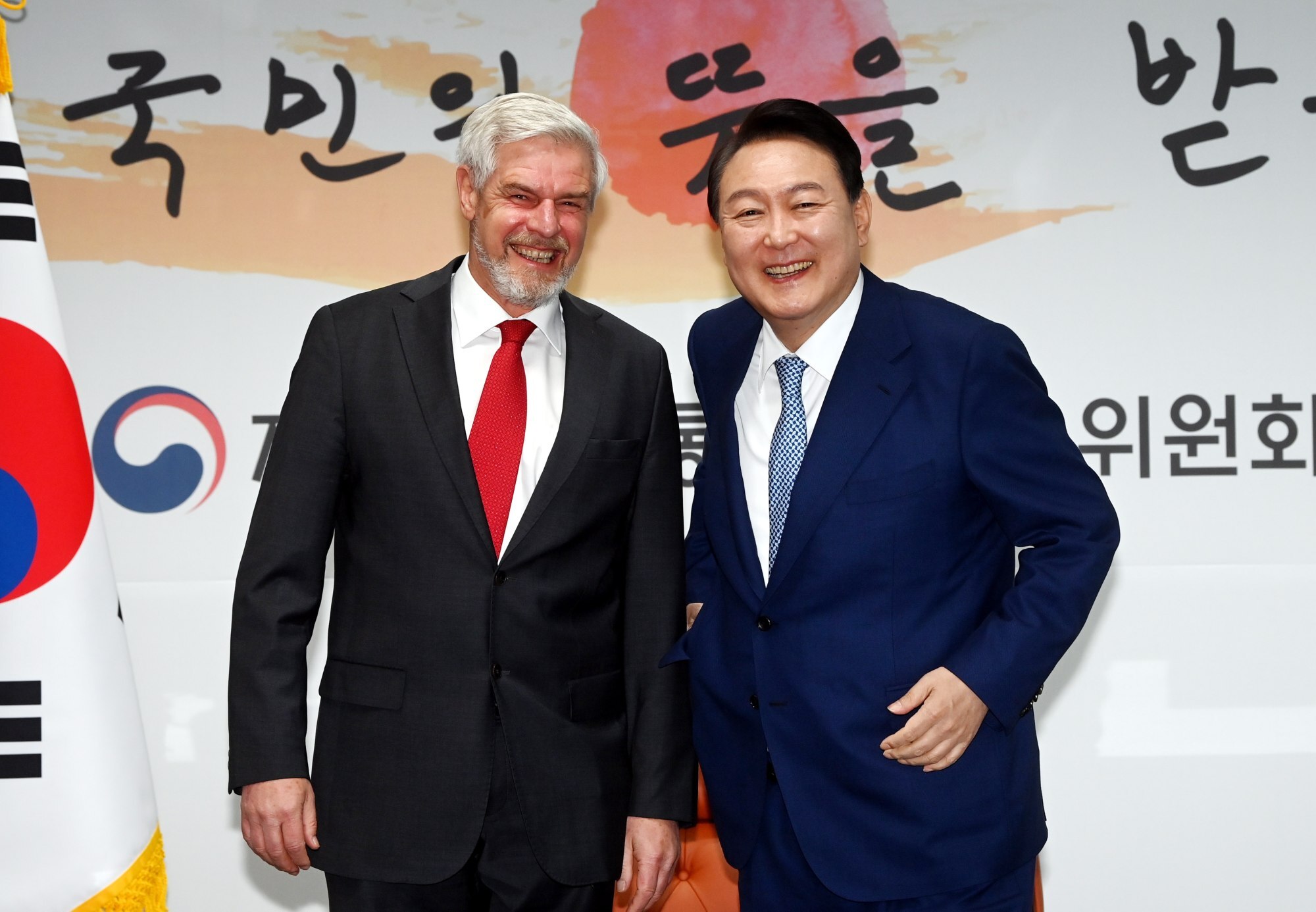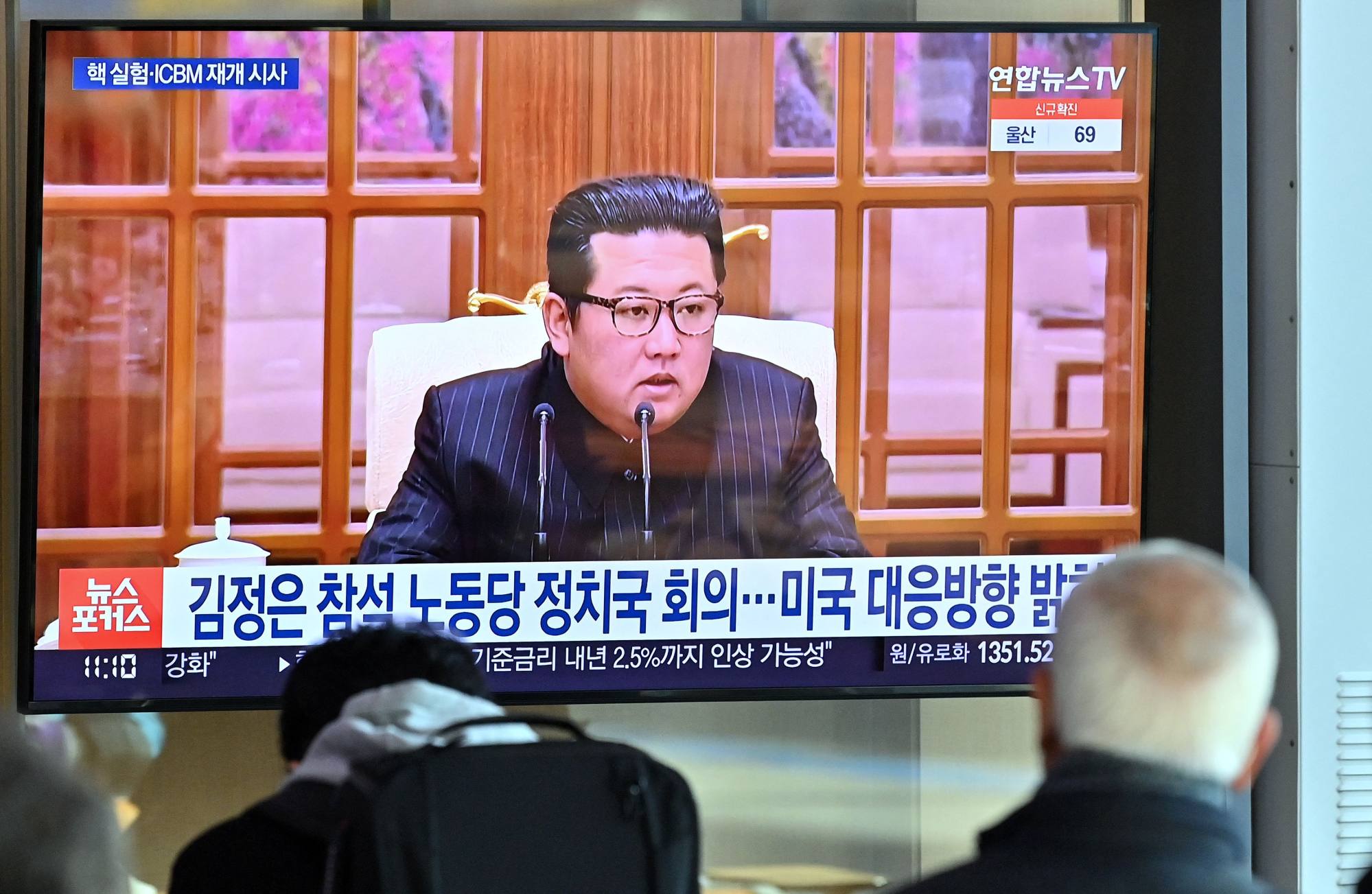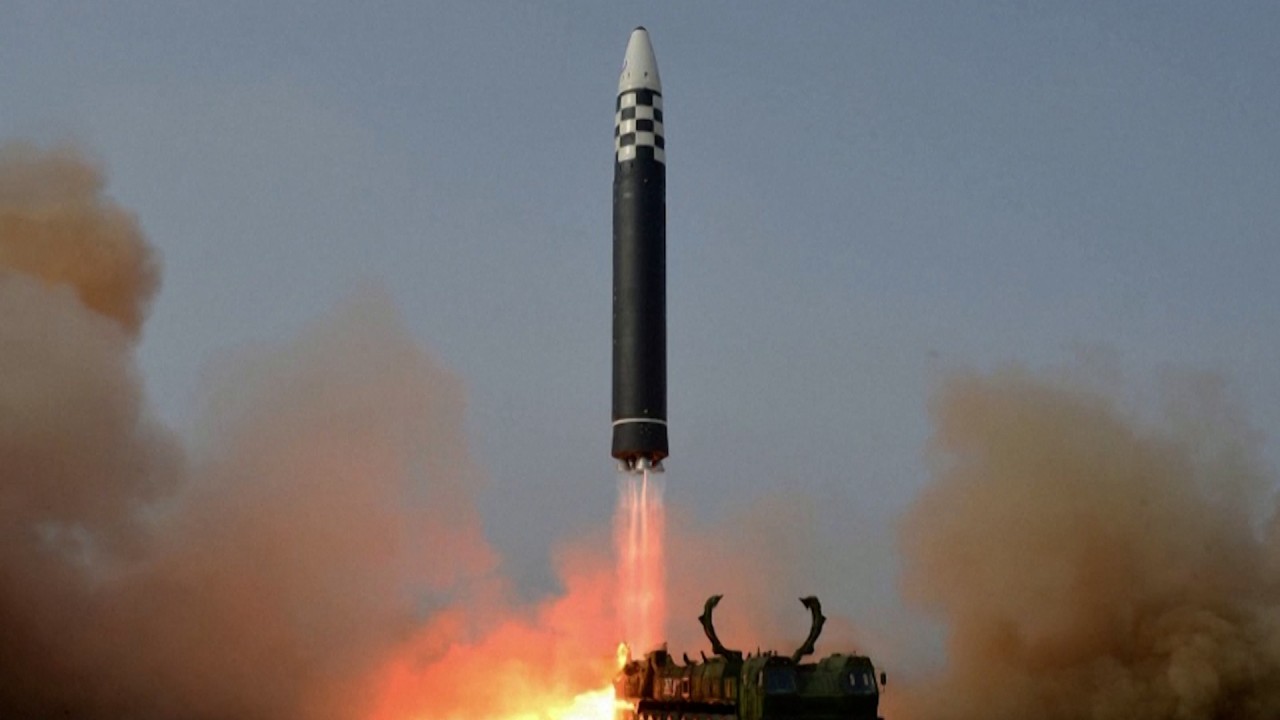
South Korea seeks return of US nuclear bombers, unsure of China’s influence over Kim Jong-un’s weapons testing plans
- Incoming president Yoon Suk-yeol keen to strengthen deterrence in light of North Korea’s recent missile tests, including an ICBM one last month
- Analyst says China’s growing rivalry with Washington means Beijing’s ‘appeared to stop leaning on the North to behave’
South Korea’s new leader is seeking the redeployment of US strategic assets such as nuclear bombers and submarines to the Korean peninsula, amid warnings Pyongyang could conduct a nuclear weapons test next week.
Incoming president Yoon Suk-yeol vowed to “increase the solidarity of the South Korea-US alliance and strengthen deterrence and the response posture against North Korea’s nuclear and missile threats” when he visited US army base Camp Humphreys in Pyeongtaek, 70km from Seoul, said his spokesperson Bae Hyun-jin on Thursday.

One of the advisers, four-term lawmaker Park Jin, said both sides discussed how North Korea’s nuclear and missile development posed a threat to the region.
South Korea president-elect to sternly deal with North Korea, reset China ties
“We agreed that it is very important to strengthen the [US nuclear] extended deterrence and bolster the joint South Korea-US defence posture,” he said, according to Yonhap News Agency.
South Korea is under the protection of the “nuclear umbrella” the US extends to nuclear weapon-free allies against a potential nuclear attack from a third country.

Asked whether the issue of deployment of US strategic assets to the Korean peninsula was brought up, Park said: “It came up naturally during the discussion.”
“The deployment of strategic assets is a key factor in strengthening the extended deterrence,” he said, without elaborating.
Asked to elaborate, a White House official said both sides had “discussed generally” US defence commitments.
Japan courts India as Ukraine shows US military ties are ‘no longer enough’
On the same day, Sung Kim, Washington’s special envoy for North Korea, said Pyongyang may be looking at some sort of display of its military power in conjunction with the April 15 anniversary of the 1912 birth of the late Kim Il- Sung, North Korea’s founder.
An atomic test would be the first globally in more than four years and add to concerns about the risks of nuclear brinkmanship amid Russia’s war in Ukraine.
“I don’t want to speculate too much, but I think it could be another missile launch, it could be a nuclear test,” he said in a conference call with reporters. The holiday, celebrating the grandfather of current leader Kim Jong-un, is one of the most important events on the North Korean calendar.
Kim Jong-un’s sister says North Korea can destroy South if provoked
North Korea last detonated a nuclear bomb in September 2017, a few months before freezing tests of atomic devices and intercontinental ballistic missiles that could deliver a warhead to the US mainland. Kim declared an end to that self-imposed moratorium with an ICBM test on March 24 after a series of different missile tests since the beginning of the year.
Yoon has also called for the additional deployment of the US THAAD missile defence system – a move that has raised China’s hackles – and the resumption of twice-a-year field exercises that involve US troops from overseas. The drills have been condemned by the North as war rehearsals. The last such field exercises took place in 2018 and since then, the allies have scaled them back, focusing more on computer simulated war games at commanding posts.
Park, tipped to be foreign minister in Yoon’s cabinet, did not elaborate when asked about plans for regular spring exercises, which domestic media have said could include nuclear bombers for the first time in nearly five years.
Analysts said the two allies were considering the reinstatement of US strategic assets as a show of force against the North’s sabre-rattling.
North Korea could hold nuclear test on coming anniversary, US says
“But it’s rare for the US to dispatch its strategic assets to the Korean peninsula solely on the basis of Seoul’s request, as Washington has to consider security needs globally,” said political science professor Park Won-gon from Seoul’s Ewha Womans University.
Park, the professor, pointed to the March 24 ICBM test and said this had made it “inevitable” for the allies to discuss the redeployment of US assets.
“However, it remains unclear whether the US, with its hands full with crises in other regions, will agree to such a move,” he said.
Japan expands sanctions against North Korea, targets Russians
Kim’s multiple missile tests this year are his way of forcing Washington to accept that North Korea is a nuclear power and to remove crippling sanctions from its broken economy.
The United Nations Security Council originally imposed sanctions after the North’s first nuclear test explosion in 2006 and reinforced them over the years. But last year veto-wielding China and Russia called for various sanctions to be lifted.
Russian Deputy Ambassador to the UN Anna Evstigneeva said further sanctions would only harm North Korea’s people, while Chinese Ambassador Zhang Jun urged the council “to consider how to accommodate the [North Korea’s] justified security concerns”.
US, South Korea may ramp up war games as North Korea tensions rise
Professor Park said South Korea viewed Ambassador Zhang’s statement as giving the green light to the North’s further ICBM and nuclear tests.
“In deciding its future course of action, South Korea cannot afford to give consideration to China’s security concerns as much as it did in the past because China, due to its mounting rivalry with the United States, has appeared to stop leaning on the North to behave,” he said.
Ukraine war has pacifist Japan considering bolstering its military defences
Professor Yang Moo-jin from Seoul’s University of North Korea Studies said the US, Japan and South Korea would pursue further sanctions against the North, and the North in its turn would further bolster its nuclear arsenal.
“We’re going to see a vicious cycle of mounting tensions in the months or years to come,” Yang said.
Additional reporting by Bloomberg and Reuters


